 In Europe and the United States, there is also the specific return to colonial form and nostalgia. In Portugal, I’ve been struck by the visible presence of what are still referred to as the “explorers” or the “discoveries,” rather than “colonizers” and “encounter.” The depiction of African bodies in official art and monuments is often stereotyped, almost degrading. I don’t see this, unfortunately, as an exception but as an example of the new divisions. Universities set a poor example here, with minorities and people of color being systematically underrepresented on both sides of the Atlantic.
In Europe and the United States, there is also the specific return to colonial form and nostalgia. In Portugal, I’ve been struck by the visible presence of what are still referred to as the “explorers” or the “discoveries,” rather than “colonizers” and “encounter.” The depiction of African bodies in official art and monuments is often stereotyped, almost degrading. I don’t see this, unfortunately, as an exception but as an example of the new divisions. Universities set a poor example here, with minorities and people of color being systematically underrepresented on both sides of the Atlantic.
Face to face
27.06.2017 | by Inês Beleza Barreiros
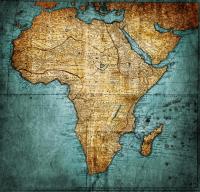 Part of our task is to build a canon, knowledge, and a way of knowing. This is happening against the backdrop of a movement by South African students to decolonise their universities; Black Lives Matter protests in the United States; and in the context of a much deeper history of national reimagination across Africa and the world.With this history in mind our faculty is working towards what we consider a decolonial social science curriculum. We’ve adopted seven commitments to help us meet this goal, and which we hope will shift educational discourse in a more equitable and representative direction.
Part of our task is to build a canon, knowledge, and a way of knowing. This is happening against the backdrop of a movement by South African students to decolonise their universities; Black Lives Matter protests in the United States; and in the context of a much deeper history of national reimagination across Africa and the world.With this history in mind our faculty is working towards what we consider a decolonial social science curriculum. We’ve adopted seven commitments to help us meet this goal, and which we hope will shift educational discourse in a more equitable and representative direction.
Mukanda
15.06.2017 | by Jess Auerbach
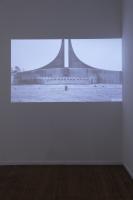 The idea of freedom as a point of arrival – an accomplishment that lies behind us, materialized and monumentalized; freedom as a ballot, a single gesture hinged to a turning point; freedom carved in stone, set on a hill, allegorized in a recognizable form; freedom as a lofty place we ascend to, is one that can be counterpoised to freedom as departure, as work and process; an immaterial, contingent ideal; an ambition and responsibility which escapes and evades one’s grasp, but to which one continuously commits.
The idea of freedom as a point of arrival – an accomplishment that lies behind us, materialized and monumentalized; freedom as a ballot, a single gesture hinged to a turning point; freedom carved in stone, set on a hill, allegorized in a recognizable form; freedom as a lofty place we ascend to, is one that can be counterpoised to freedom as departure, as work and process; an immaterial, contingent ideal; an ambition and responsibility which escapes and evades one’s grasp, but to which one continuously commits.
I'll visit
08.06.2017 | by Nancy Dantas
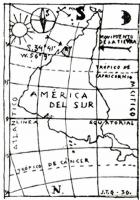 Philosophy students should be encouraged to engage with the challenging work of thinkers like Kwami Anthony Appiah, Franz Fanon, Achille Mbembe, Valentin-Yves Mudimbe, Enrique Dussell and Walter Mignolo just as they do with Parfit and Strawson. Should we not all be in the business of engaging, to quote Nietzsche, with 'what may be thought against our thought'?
Philosophy students should be encouraged to engage with the challenging work of thinkers like Kwami Anthony Appiah, Franz Fanon, Achille Mbembe, Valentin-Yves Mudimbe, Enrique Dussell and Walter Mignolo just as they do with Parfit and Strawson. Should we not all be in the business of engaging, to quote Nietzsche, with 'what may be thought against our thought'?
Mukanda
04.04.2017 | by World Philosophies
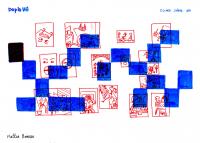 Duplo vê*, is at once, the name for the letter W in Portuguese (inspired by the title W ou les souvenirs d’enfance by George Perec) and also the “double sight” of a cross-eyed God. Duplo vê could have a subtitle: essay on the strabismus of God.
Duplo vê*, is at once, the name for the letter W in Portuguese (inspired by the title W ou les souvenirs d’enfance by George Perec) and also the “double sight” of a cross-eyed God. Duplo vê could have a subtitle: essay on the strabismus of God.
Mukanda
17.02.2017 | by Mattia Denisse
 Our duty, as creative people, to paraphrase the late Nina Simone, should always be to reflect the times we live in. We do this also by challenging constructions of history that have and continue to favour the powerful as we fight for the future we want to see and experience in the world, beyond our own physical existences.
Our duty, as creative people, to paraphrase the late Nina Simone, should always be to reflect the times we live in. We do this also by challenging constructions of history that have and continue to favour the powerful as we fight for the future we want to see and experience in the world, beyond our own physical existences.
Face to face
31.01.2017 | by Gabi Ngcobo and Katerina Valdivia Bruch
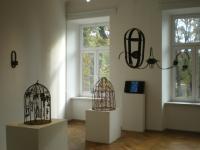 For centuries enslaved Africans were taken to Europe and America to serve as workforce. These individuals were forced into submission and considered sub-human. They were brutalized and treated worse than animals by other individuals, and their institutions, which thought of themselves as civilized and modern. These enslaved men and women suffered and despaired, and dreamt of a life before, and of a land more familiar and kind. So, out of the insanity of misery and helplessness, they would eat the soil in the hope of being taken back to that time and land of before.
For centuries enslaved Africans were taken to Europe and America to serve as workforce. These individuals were forced into submission and considered sub-human. They were brutalized and treated worse than animals by other individuals, and their institutions, which thought of themselves as civilized and modern. These enslaved men and women suffered and despaired, and dreamt of a life before, and of a land more familiar and kind. So, out of the insanity of misery and helplessness, they would eat the soil in the hope of being taken back to that time and land of before.
I'll visit
10.11.2016 | by Ana Rita Canhão
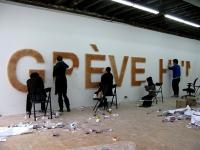 Art’s potential is something that can’t be measured, what the encounter with an artwork can do to a subject, how the freedom trapped in a sculpture, a painting, a statement can influence a singularity and masses cannot be said. That also explains our position: we don’t have any superstitious belief in the immediate political efficacy of our work, this is somehow not our main worry, artworks hopefully survive artists and the time for our work to truly touch people might not even have come yet. Like any artist we work because we need to, it’s our way to stay alive.
Art’s potential is something that can’t be measured, what the encounter with an artwork can do to a subject, how the freedom trapped in a sculpture, a painting, a statement can influence a singularity and masses cannot be said. That also explains our position: we don’t have any superstitious belief in the immediate political efficacy of our work, this is somehow not our main worry, artworks hopefully survive artists and the time for our work to truly touch people might not even have come yet. Like any artist we work because we need to, it’s our way to stay alive.
Face to face
11.10.2016 | by Leonardo Araújo, Alex Flynn and Claire Fontaine
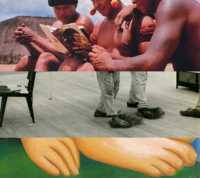 Art has always been able to gather critical tools of action from different contexts of knowledge in order to intervene in institutions, politics, and social problems. This makes it a privileged place to find new strategies for empistemodiversity. At the same time, art has always maintained a strict border between itself and popular culture, to ensure that art is on the same level as the Western sciences. What if this border disappeared? How do we construct a new language that uses popular knowledge not as a theme for contemporary art, but as a spark for creating new regimes of representation and new structures of thought? How can contemporary art contribute to the learning of epistemodiversity?
Art has always been able to gather critical tools of action from different contexts of knowledge in order to intervene in institutions, politics, and social problems. This makes it a privileged place to find new strategies for empistemodiversity. At the same time, art has always maintained a strict border between itself and popular culture, to ensure that art is on the same level as the Western sciences. What if this border disappeared? How do we construct a new language that uses popular knowledge not as a theme for contemporary art, but as a spark for creating new regimes of representation and new structures of thought? How can contemporary art contribute to the learning of epistemodiversity?
To read
10.10.2016 | by María Iñigo Clavo
 We want a black dyke for president.
We want a person with AIDS for president and we want a trans person for vice president and we want someone with no health insurance and we want someone who grew up in a place where the earth is so saturated with toxic waste that didn’t have a choice about getting leukemia. We want a latino faggot for president who saw their best friends die in a mass shooting. We want a president that had an abortion at sixteen and we want a candidate who is a part-time hooker. We want a differently abled refugee for president. We want a president with no airconditioning, who has stood in line at the clinic, who stole their last meal and has been unemployed and was sexually harassed and gaybashed and deported.
We want a black dyke for president.
We want a person with AIDS for president and we want a trans person for vice president and we want someone with no health insurance and we want someone who grew up in a place where the earth is so saturated with toxic waste that didn’t have a choice about getting leukemia. We want a latino faggot for president who saw their best friends die in a mass shooting. We want a president that had an abortion at sixteen and we want a candidate who is a part-time hooker. We want a differently abled refugee for president. We want a president with no airconditioning, who has stood in line at the clinic, who stole their last meal and has been unemployed and was sexually harassed and gaybashed and deported.
Face to face
15.09.2016 | by Pedro Marum
 It comes to the present time and looks at African struggle fighters – the construction of the sole hero- and the possibilities that the archive should include other partners by featuring their spouses names in the conversation, however, open to other additions and manners in which to author our histories.
It comes to the present time and looks at African struggle fighters – the construction of the sole hero- and the possibilities that the archive should include other partners by featuring their spouses names in the conversation, however, open to other additions and manners in which to author our histories.
Face to face
31.05.2016 | by Euridice Kala
 Our original strategy was always to bring African artists to the international stage, which I think is what is missing, and maybe one day we would be very happy to go but I think there are many other places where we can go, which we are trying to do already, for example, workshops for galleries, for artists. I think there’s much more on the educational side of things that we can bring with our knowledge to the continent than having a commercial initiative about sales.
Our original strategy was always to bring African artists to the international stage, which I think is what is missing, and maybe one day we would be very happy to go but I think there are many other places where we can go, which we are trying to do already, for example, workshops for galleries, for artists. I think there’s much more on the educational side of things that we can bring with our knowledge to the continent than having a commercial initiative about sales.
Face to face
08.05.2016 | by Icaro Ferraz Vidal Junior
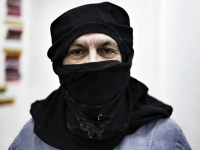 Lots of people are beginning to think about politics, learning how to think about the city, relations and institutions. There are people from all over the place, from universities, associations and schools. And the Government is feeling it, they fear our advances. But to say that popular uprisings in Brazil are brainless and devoid of focus is simplistic, because everything is focus. JEUX SANS FRONTIÈRES #2
Lots of people are beginning to think about politics, learning how to think about the city, relations and institutions. There are people from all over the place, from universities, associations and schools. And the Government is feeling it, they fear our advances. But to say that popular uprisings in Brazil are brainless and devoid of focus is simplistic, because everything is focus. JEUX SANS FRONTIÈRES #2
Games Without Borders
09.04.2016 | by
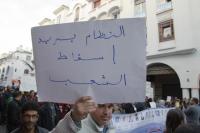 In Morocco, unlike other countries, despite the enormous popular support for the protests, which took place simultaneously in several cities on February 20, 2011, and that re-occurred sometimes on a weekly basis during that year, there were no calls (with some timid exceptions) based on the famous slogan “the people want the fall of the regime.” This would become a somewhat taboo slogan, either for fear of jeopardizing the monarchical regime, whose legitimacy is presented as being unquestionable, or by an apparently sincere devotion of a significant portion of the population towards the Moroccan monarchy. JSF#2
In Morocco, unlike other countries, despite the enormous popular support for the protests, which took place simultaneously in several cities on February 20, 2011, and that re-occurred sometimes on a weekly basis during that year, there were no calls (with some timid exceptions) based on the famous slogan “the people want the fall of the regime.” This would become a somewhat taboo slogan, either for fear of jeopardizing the monarchical regime, whose legitimacy is presented as being unquestionable, or by an apparently sincere devotion of a significant portion of the population towards the Moroccan monarchy. JSF#2
Games Without Borders
28.03.2016 | by Hugo Maia
 Simone was able to conjure glamour in spite of everything the world said about black women who looked like her. And for that she enjoyed a special place in the pantheon of resistance. That fact doesn’t just have to do with her lyrics or her musicianship, but also how she looked. Simone is something more than a female Bob Marley. It is not simply the voice: It is the world that made that voice, all the hurt and pain of denigration, forged into something otherworldly.
Simone was able to conjure glamour in spite of everything the world said about black women who looked like her. And for that she enjoyed a special place in the pantheon of resistance. That fact doesn’t just have to do with her lyrics or her musicianship, but also how she looked. Simone is something more than a female Bob Marley. It is not simply the voice: It is the world that made that voice, all the hurt and pain of denigration, forged into something otherworldly.
To read
23.03.2016 | by Ta-Nehisi Coates
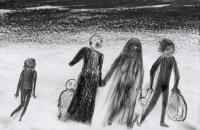 i would not be
i would not be had i not not i i too but not even at all if.
i would not be only not i i too i would not be. i am because. i am i too i because if.
i would not be if my mother had not met my father i naturally by the nature of things would not be i would not be.
i would not be
i would not be had i not not i i too but not even at all if.
i would not be only not i i too i would not be. i am because. i am i too i because if.
i would not be if my mother had not met my father i naturally by the nature of things would not be i would not be.
Games Without Borders
18.03.2016 | by Miriam Cahn
 Europe is said to be currently facing the biggest refugee crisis since the Second World War. In the media, images of people escaping from their home countries devastated by war and misery and arriving to Europe are recurrent. As these pictures spread and instigate different reactions – some of them highly racist and xenophobic – another picture came to my mind: a picture of Lisbon in 1975 by Alfredo Cunha, shortly after the arrival of 6000 people from the Portuguese ex-colonies of Angola, Mozambique, Guinea-Bissau, São Tomé and Príncipe and Cape Verde.
in"Decolonizing Museums", L'Internacionale.
Europe is said to be currently facing the biggest refugee crisis since the Second World War. In the media, images of people escaping from their home countries devastated by war and misery and arriving to Europe are recurrent. As these pictures spread and instigate different reactions – some of them highly racist and xenophobic – another picture came to my mind: a picture of Lisbon in 1975 by Alfredo Cunha, shortly after the arrival of 6000 people from the Portuguese ex-colonies of Angola, Mozambique, Guinea-Bissau, São Tomé and Príncipe and Cape Verde.
in"Decolonizing Museums", L'Internacionale.
City
14.03.2016 | by Ana Bigotte Vieira
 By systematically deconstructing the travel logs and journals of European explorers, scientists and traders who wandered through tropical Africa in the late 19th century, proves that these documents were often idealized or inaccurate and that, most of the time, these Europeans were in a permanent state of ecstasy caused by the disease, high doses of quinine, alcohol, opiates and other drugs.
By systematically deconstructing the travel logs and journals of European explorers, scientists and traders who wandered through tropical Africa in the late 19th century, proves that these documents were often idealized or inaccurate and that, most of the time, these Europeans were in a permanent state of ecstasy caused by the disease, high doses of quinine, alcohol, opiates and other drugs.
Afroscreen
14.03.2016 | by António Pinto Ribeiro
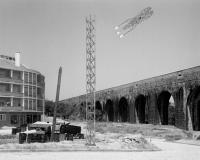 The text focuses on three operations – OPENING, REMOVAL and RESTITUTION - having Ana Hatherly’s work "As Ruas de Lisboa", Isabel Brison and Nuno Rodrigues de Sousa’s "O Monumento da Rotunda das Águas Livres", and Ana Bigotte Vieira’s "No Aleph – Notes about a research on Calouste Gulbenkian Foundation ACARTE Service (1984-1989)" as main sources. It is important to note that this text is being written in 2015, at a time when the brutal presence of a succession of absences in Portuguese recent history is felt more than ever. In fact, the current austerity policies point to the removal of a series of I would call ‘openings’ directly related to the Revolution on 25 April 1974 that overthrew António de Oliveira Salazar and Marcelo Caetano’s forty-eight year dictatorship and ended thirteen years of colonial wars. in"Decolonizing Museums", L'Internacionale
The text focuses on three operations – OPENING, REMOVAL and RESTITUTION - having Ana Hatherly’s work "As Ruas de Lisboa", Isabel Brison and Nuno Rodrigues de Sousa’s "O Monumento da Rotunda das Águas Livres", and Ana Bigotte Vieira’s "No Aleph – Notes about a research on Calouste Gulbenkian Foundation ACARTE Service (1984-1989)" as main sources. It is important to note that this text is being written in 2015, at a time when the brutal presence of a succession of absences in Portuguese recent history is felt more than ever. In fact, the current austerity policies point to the removal of a series of I would call ‘openings’ directly related to the Revolution on 25 April 1974 that overthrew António de Oliveira Salazar and Marcelo Caetano’s forty-eight year dictatorship and ended thirteen years of colonial wars. in"Decolonizing Museums", L'Internacionale
City
08.03.2016 | by Ana Bigotte Vieira
 People are fighting today against growing poverty, against mutating forms of capitalist exploitation disguised and administered under the label of “austerity politics” in Europe and elsewhere. But to resist – r/esistere in a somewhat fictional etymology – also means to invent new modes of existence. To invent is not to create something out of nothing, but to aggregate forces that were already present – the invention in this sense is a recomposition of forces. MAGAZINE JSF#2
People are fighting today against growing poverty, against mutating forms of capitalist exploitation disguised and administered under the label of “austerity politics” in Europe and elsewhere. But to resist – r/esistere in a somewhat fictional etymology – also means to invent new modes of existence. To invent is not to create something out of nothing, but to aggregate forces that were already present – the invention in this sense is a recomposition of forces. MAGAZINE JSF#2
Games Without Borders
08.03.2016 | by Sandra Lang